Interview with Jayne Batzofin
This is the second interview in a series profiling Cape Town-based theatre artists and companies presenting work at the 42 Annual National Arts Festival (NAF), held from 30 June through 10 July 2016 in Grahamstown, South Africa. This series will lead up to my eventual review of the festival for HowlRound's NewCrit section.
An eleven-day extravaganza of theatre, dance, music, fine art, and more, the NAF is the largest arts festival of its kind in the Southern Hemisphere and serves as a dynamic platform for both new and established artists from South Africa and around the world. It's my hope that these profiles will provide a tiny glimpse into the flourishing theatre ecology of South Africa and to the questions artists in the country are posing through their work.
To read the other interviews in the series, click here.
Johannesburg-raised, Cape Town-based theatremaker Jayne Batzofin is a woman of many talents. With a background in scenic and costume design and extensive training in clown at the world-renowned L'Ecole Internationale de Theatre Jacques Lecoq, she regularly crafts theatre events that are visually complex and aurally layered. Jayne locates clowning at the core of her practice, as it allows an authentic and flexible context in which to explore communication, presence, and ability, among other compelling—and contemporary—issues.
Jayne has worked as a scenic and costume designer on many acclaimed South African productions, including Rob Murray, Andrew Buckland and Liezl de Kock's physical theatre piece Crazy in Love, for which she created an intricate and surprising backdrop for an absurd story about longing and loss. Informed by her design sensibility, Jayne's work as a director and theatremaker with companies like FTH:K (From the Hip: Khulumakhale) and Clowns Without Borders, South Africa has foregrounded the possibility of non-verbal theatre to cross boundaries, and to inspire both a sense of wonder and a deeper probing of the profound questions that shape our lives.
Among Jayne's critically-acclaimed theatre pieces is Pruttel, a mask work that premiered at the 2012 Klein Karoo Nasionale Kunstefees and won an award for best debut production. The play tells the story of Tannie (“Aunt” in Afrikaans) Van der Wat, a 94-year-old hermit who is regularly visited by a mysterious volunteer from Meals on Wheels. Exploring the deafening silences of the apartheid past, Pruttel asks insightful questions about memory, generational difference, and the imperative to speak.
Speaking and silence are central themes in the performance Jayne brought to Grahamstown this year. The cleverly titled No Fun Ction All Anguage takes a look at the potentials and pitfalls of human communication. I sat down with Jayne to hear more about the piece, and about how clowning influences her work in the theatre.
What I love about clowning is that you rely entirely on the audience. The clown cannot exist if there is no audience.
Paul Adolphsen: Can you describe your first experience with theatre or performance?
Jayne Batzofin: I was born into the theatre. My grandfather did it, my father did it, and my aunt did it. My first memory is of Snow White and the Seven Dwarves. I must have been five. I remember there was a smoke machine and darkness. I remember the figure of Snow White and eating a lipstick sweet, a sweet you could roll up like a lipstick. I remember the taste so vividly.
Paul: How did you come to theatre as a career?
Jayne: It comes back to being born into it. My dad worked in theatre as a stage manager and lighting designer. When my parents got divorced, I’d spend the weekends with my dad in the lighting box. So I saw [theatre] all the time. I went to weekend classes and I did extracurricular drama. And then came the question of what I was going to do for a career. I'd seen the struggle that is theatre, so there was no disillusionment. I had lived through months when my father had no money. But when I asked “what else could I do?” I had no idea at all. I guess it was just a given.
I studied at Wits [the University of the Witswatersrand] for four years. I got my Honors in Directing and Stage and Costume Design.
After those four years, I felt like I didn't have the tools I wanted yet. All my favorite South African directors and performers studied at the Lecoq school in Paris [L'Ecole Internationale de Theatre Jacques Lecoq]. So I thought, “OK, I don't know French, but if that is where this school is, let's do it.” I was accepted. After the first three months, you have a check-in to see if you want to stay or not, and I stayed for a year. After that they cut [the class] down by a third and I got through to second year, which was pretty spectacular. While I was there, I was speaking to a theatre in Cape Town [FTH: K, From the Hip: Khulumakhale] about joining them. They still had funding and an opportunity to have an intern. So I moved to Cape Town not knowing a soul and was with them for three years. That full time company funding unfortunately, like so much NGO funding, came to an end and I've been freelancing ever since.
[The work I've done] has always been alternative, a niche kind of theatre. I've never been in the commercial sector. I've been more drawn to alternative ways of seeing the world.
Paul: Could you talk more about clowning, and how you see it as a foundation for your work?
Jayne: What I love about clowning is that you rely entirely on the audience. The clown cannot exist if there is no audience. So you're making theatre that recognizes that there is an audience, and gives them respect. A person once asked me, “Movies do movies beautifully, so why are we attempting to do that in theatre?” What makes theatre, theatre? It's the connection, it's the realness, it's the contact. And that's what I love about clowning: it's so immediate, there is no fourth wall. If someone sneezes, you recognize it. It's kind of funny to me when I see shows where actors totally ignore what is happening [in the audience]—cell phones ringing.
I'm also drawn to the clown because it’s quite authentic. Each clown is different since it comes out of the person. Whenever I've made work, I've worked with the individual. I spend up to three months choosing my cast because the play will be integrally linked to who they are as people. If I chose a different cast, the show would be entirely different.
Paul: How do you approach language in your work?
Jayne: My explorations before and during my time at FTH:K were all in non-verbal theatre. My use of language was almost non-existent. [I used language] to create a feeling or an atmosphere. I would use words that sound right in space, that come out of the mouth in a certain way. I don't know how to quite describe it. It was like a sensory, oral experience more than anything.
Paul: The meaning of a word came from how it sounded?
Jayne: Exactly. [For example,] if you go “g-g-g-g-g-g” in the space, it gives you a feeling without understanding what the word is necessarily. Because we come from such a diverse country, I'm highly aware that I want different people to engage with my work. I've also worked with Clowns Without Borders South Africa [CWBSA]. [With CWBSA] I [might] be working with a Zulu community, and I'd create work in Zulu, but with the same methodology and approach—what does it sound like? So on the rehearsal floor the performers would talk in Zulu, [and I focused on] the sound of [the language], the rhythm of it. Theatre is all about rhythm and pacing. You can have the most beautifully written words, but if they're not delivered with the right rhythm or pace, they don't work.
For a large part of my career I wasn't “interested” in language, or the power of words. And guess what happened? I became interested! Because [words] do have meaning, and they have power. I think that was brought to the foreground when I was asked to direct a work at the Women's International Playwrights International Conference last year in Cape Town. I [looked at the script] and was like, “Oh my God, it's words. It's just words. They're pretty exquisite.” I could do so much more with it. And I was taking writing workshops at the conference as well, and people said, “You have such a beautiful way with words. You should really start looking at it more.”
I feel like we're all fighting for funding and that tends to separate us. I'd like to see more support and encouragement. I'd like us to know what we're trying to say as artists to our particular context.
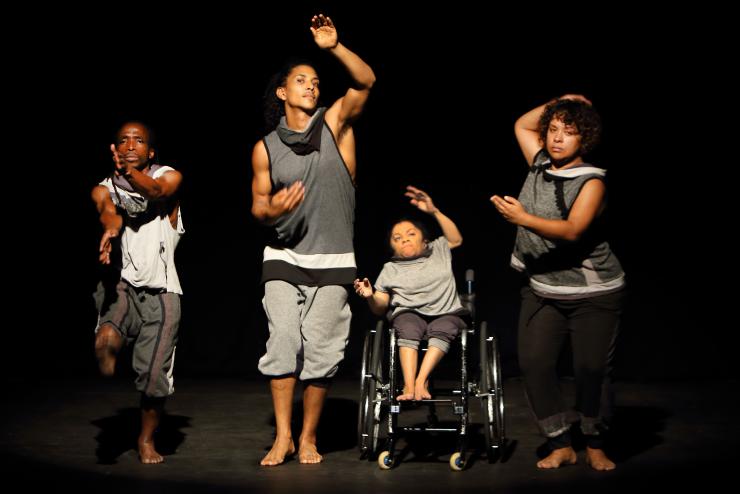
Paul: Given this relatively recent interest in language, can you talk more about No Fun Ction All Anguage, the piece you're bringing to NAF?
Jayne: I was hired by the Chaeli Campaign [an organization that serves differently abled children] to make a show around the question: What is functional language? How do we communicate with each other? And when you think about it, how do we communicate with each other? When you break down what a vowel and consonant are, they're so bizarre. Even more bizarre is how we derive meaning from them, and how people will fight tooth and nail over a meaning. For example, when someone says “I love you,” we ask, “What do you mean by 'love'? Do you really mean love? Or do you mean lust?” Then we get caught up in words when it's actually this ridiculous way our mouths open and close, and how our vocal chords make sounds.
The children at the Chaeli Campaign don't have this notion of “functional” language. [Many] can't shape sound. But does that mean they don't communicate? Of course not. They communicate all the time. Body language tells us so much more that words can at times. And that is what No Fun Ction All Angauge unpacks. It unpacks how words are used to deceive, to comfort. Then there's an inability to comfort with words when we should just follow body language, trusting what we feel versus what we hear. So [the play] is an exploration into what exactly is language is; getting to break it, unpack it, and put it together again.
Paul: Can you describe the Chaeli Campaign?
Jayne: It's a not-for-profit organization whose vision is to mobilize the minds and bodies of children with disabilities and to normalize society through advocacy and education programs and events. I[Originally] they weren't affiliated with theatre. Yet, they soon realized that the arts are important in promoting ideology around work. This is when [Cape Town-based writer and educator] Jared Kruger joined them and said, “Let's look at theatre as our mode for getting our message out there.” So a lot of their work is about the message of not only the Chaeli campaign, but also [exploring] how we interact with people who are differently abled.
I've worked with the Deaf for seven years. I have a particular way of seeing Deafness as cultural. Some of the people I work with who are Deaf say, “We're not disabled. Those people without legs, or arms—they're disabled.” So there's this question of who is “disabled” and who is “abled.” When I met Chaeli, she broke every preconception I had around how someone in a wheelchair interacts with the world, and who they are as people. See the person before the wheelchair in a real genuine way. I'm so grateful for my interactions with her and their organization.
Paul: In No Fun Ction All Anguage you have differently abled performers. Can you talk about where you see ability within the performance? Or not, as the case may be?
Jayne: I hired everyone on to this project because of their experience and their expertise. I also feel that a cast should represent the message of a production. If I want a production to be about diversity, I'm not going to have an all-white cast. And if I want to speak around differently abled-ness, why would I have an all-abled cast? Even though I'm not talking about disability at any point [in No Fun Ction All Anguage], it's intrinsically there because we're watching people move and communicate in different ways. It's been wonderful watching kids respond to [the play]. A lot of what they get out of it is: “If they can do it, then I can do so many things!” That's not necessarily what the play is about, but that's what they're getting from seeing differently-abled performers. And that's empowering at its core.
Christelle Dreyer is a dancer who uses a wheelchair, but she's not bound to the wheelchair in any regards; so she moves separately from it as well. She came for the audition and she blew my conceptions out of the water. Christelle can move in a way I think I'll never be able to move. She's the most flexible person I've ever met and she's got these gorgeous legs. That's what was beautiful [about the audition process]—people dance in different ways. It's not like “There are professional dancers who are abled, and then there are disabled dancers who do well for being disabled.” No, we need to start breaking our boundaries and perceptions of what is a dancer. Christelle did that for me. Andile [Vellem] does the same for me. Andile's just a great mover. So many people link him with deafness, and that's like saying: “He's such an incredible mover for someone who speaks Sotho.” For me, Deafness is cultural, and is in no way a disability. So it's been beautiful to explore how we do warm-ups together, how we create, and how we make choreography.
Everybody's story is important and valued in the piece. I am so grateful that they shared so many of their stories—personal, horrific, traumatic stories. Especially with Christelle and Andile, [who shared] about how they've been treated because they are perceived as disabled. I can't tell you how grateful I am that they share these stories, and then allow for them to be told on the stage.
Paul: What are some of your hopes for South African theatre? What are some things you'd like to see in ten years?
Jayne: I'd like work to be categorized differently, so no one starts with: “Oh, it's an isiXhosa piece.” But rather: “There's a show happening. Let's go watch it.” More diversity. More bringing together of different areas and different artists. I'd like to see more quality children's work as well. It's starting to happen. But in ten years-time I almost want it to supersede adult work.
This maybe speaks to the sociological side of things, but I'd like to see more camaraderie—genuine, authentic camaraderie. I feel like we're all fighting for funding and that tends to separate us. I'd like to see more support and encouragement. I'd like us to know what we're trying to say as artists to our particular context.
More playwrights! More South African playwrights developing their work. That's what I'd really love to see. And more teaching and lecturing around dramaturgy. Finding out: what is South African theatre? I'd like us to be slightly closer to that.

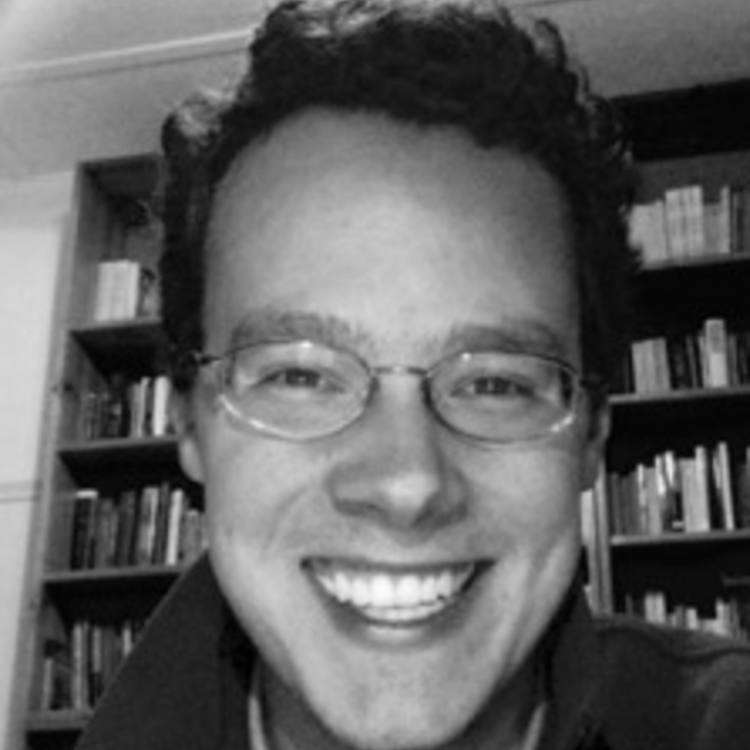
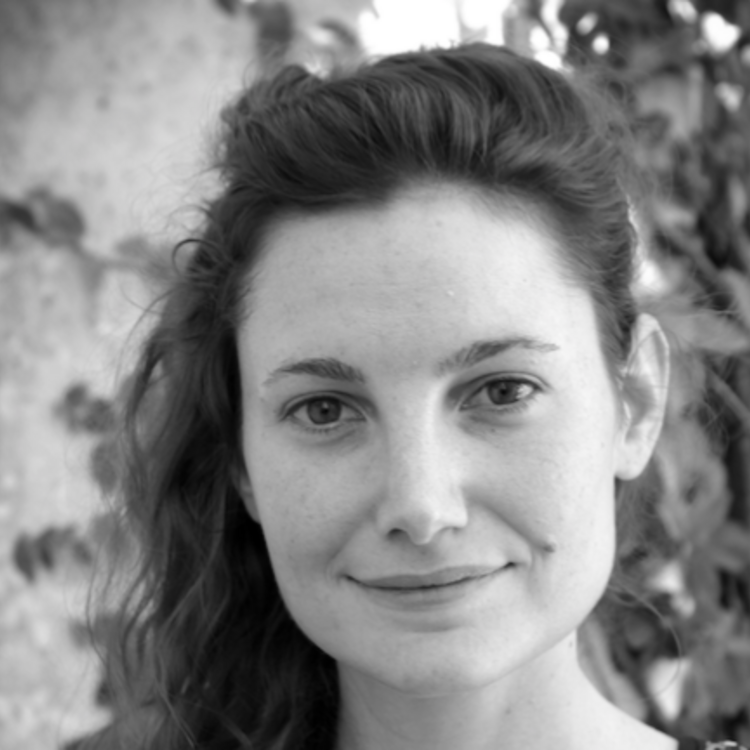
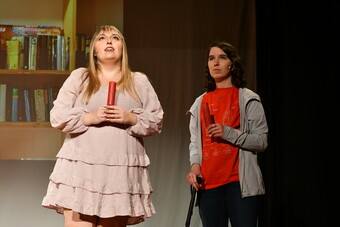

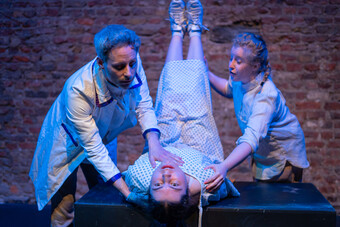




Comments
The article is just the start of the conversation—we want to know what you think about this subject, too! HowlRound is a space for knowledge-sharing, and we welcome spirited, thoughtful, and on-topic dialogue. Find our full comments policy here